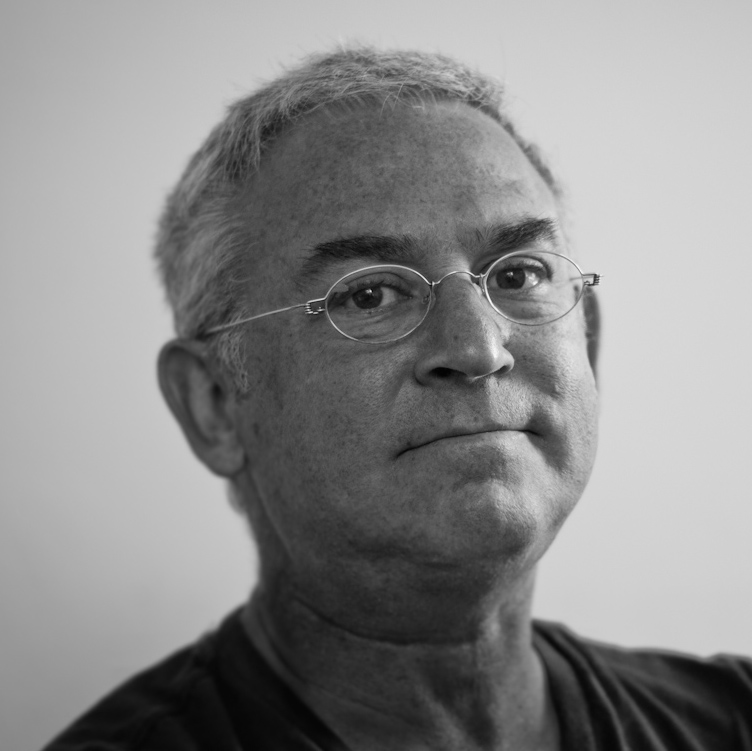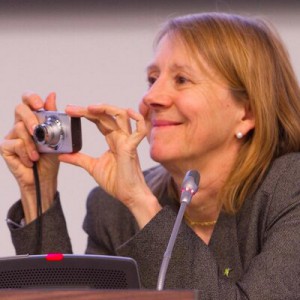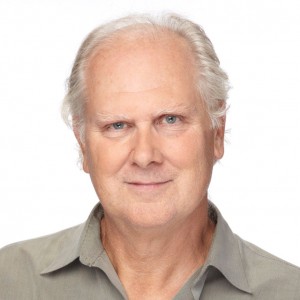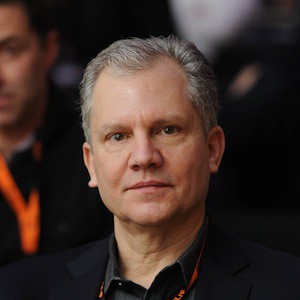John: OK. Start by telling me give me your career path, Josh.
Josh: How far back do you want to go? I started in the 1950s.
John: Let’s start why you got into journalism and then why you
segued into tech.
Josh: OK. I actually was raised to take over my father’s fireplace
equipment manufacturing business in the appropriately named Sinking
Springs, Pennsylvania and every vacation since I was 13 years old,
he would pack me off to toil in his factory so that one day I would
be a great boss.
I went off to undergraduate school in Iowa, Grinnell, Iowa,
and of course, became a rope belt-wearing Marxist. By the time I
graduated, there was nothing I wanted to do less than work for my
old man. Luckily for me and unluckily for him, he was going
bankrupt around that time.
There I was, 21 years old, completely liberated from the
yoke of oppression, didn’t have a clue what I wanted to do. I moved
out to Albuquerque, New Mexico, where I had a cousin and I lived on
his sofa for a while, relishing my newfound freedom with the vague
idea that someday I wanted to be a writer.
I went down to the newspaper and filled out an application
and they were like, “Thanks, son. Get out of here.”
Then I did a whole variety of odd jobs for a while, was a
delivery boy, worked in a carnival, did all sorts of things. Found
my way into a law firm, was a paralegal for a while, thought I
might want to be a lawyer. Did Indian water rights law for about
three years, and realized that that would be a slow death for me,
because I’m very peripatetic and very ADD and the thought of
working on one thing forever would have killed me.
I met a guy; I answered an ad in the alternative newspaper
in Albuquerque. Guy was looking for a comedy writing partner. I
called him up, we met, liked him a lot. He was the weekend night
police reporter at the Albuquerque Journal. I was like, “That
sounds awesome. Like, how do you get a job like that?”
He said, “Well, you start by freelancing.” He gave me some
pointers, he told me who to call. I pitched an idea. Two weeks
later, I had my first byline in the Albuquerque Journal.
It was, you know how there are life’s epiphanies? I just
like, I fingered that thing and looked at that thing and there was
nothing that felt better in my entire life. All I knew with any
certainty was this is what I wanted to do.
After having done a half dozen of those, my buddy moved up
to the full time night police reporter. He put in a word for me.
The city editor said, “I’ll take a risk. This is not ever going to
lead to a full time job.” I got hired.
Again, it was that sword in the stone feeling. I mean, I
knew that this is who I was and I loved it. I loved it. I loved
everything about working at the paper.
The fact that they paid me to drive around in this little
Jeep listening to three police radios and that they paid me to go
out to the scene of the crime before the cops even got there. Then
I could walk around and ask stupid questions and everyone had to
answer the little man with the reporter’s pad. Then I could race
back and write my own movie about what happened. Oh, man, I was
just in heaven.
I was good at it and it was the first thing I was ever good
at. I was like a mediocre student and always got into trouble for
asking questions and for being a wise guy.
Here, all of the things that I got yelled at for were like,
it was like perfect training. Even the idea that I would never
crack my books until the night before the paper was due, that
turned out to be the best reporting of all for a reporter. Right?
Like, you just have to learn it really fast, regurgitate it in a
sensible way and get on with your life. It was perfect. I loved it,
loved it, loved it.
After three years there, I had done all that I could do, and
I felt like I was no longer learning anything, so I went back East.
I went to Columbia; I got my Master’s degree. Was going to drop out
after a few weeks of that. It felt like fraud to me. It was like,
referred to it derisively as the great writers’ school.
But then I found this wonderful teacher there named Robin
Reisig, I don’t know if you’ve ever heard of her. She was like a
nun. She was like the Mother Teresa of journalism. She got me into
the right classes and everything took off.
I worked the Bergen Record while I was here to help put
myself through school. Along the way, met one of, her adjunct was a
guy named Bob Keeler, who was the state editor at Newsday. Which
was a very fine newspaper in those days on Long Island.
Making inroads in New York.
After I graduated from Columbia, I got hired there. That was
a great newspaper. There was a guy there, who I mentioned early,
Howie Schneider, who was the heart, soul and lungs of the place. A
fantastic journalist.
After working for a few years as a crime reporter, I became
a general assignment reporter. Hated that, needed the
specialization to get ahead.
I had always had a PC because my handwriting is so ugly and
appalling even I can’t read it. I had gotten into trouble like
misreading my notes.
I learned how to type on that thing very quickly and I
worked on it, so I was never afraid of it even though I’m not the
slightest bit technical. In fact, I’m pretty much of an enumerate.
I was always comfortable with PCs. Howie he saw this whole
information super highway thing coming as early as 1990.
He was a guy who — I guess he had seen a speech by a fellow
named, Roger Fidler.
Josh: I don’t know if that name has come up.
John: Knight-Ridder, yeah.
Josh: Knight-Ridder. Roger traveled around with basically a
tablet. Of course, the tablet was like one of Moses’ tablets. It
probably weighed about 60 pounds.
He had this vision of what the world was going to look like
and Howie was smitten with it.
Howie saw the future and Howie created a job in 1990 on
the national desk at News Day, Long Island, New York in Long
Island, New York that was called “Information technology.”
Because of my then three years or four years of service I put in for
it, I got the job. The great thing about Newsday in those days is
it was rolling in money and it was a very responsible newspaper.
Howie was like “Look, this is a great job. I want you go
educate yourself. Buy any books you want. Go any place you want.
You don’t have to do stories. For the next year, educate yourself.”
Can you imagine that happening today?
John: No, I can’t.
Josh: It was amazing.
John: You don’t get that license.
Josh: It was amazing, and I did just that. I came out here and I
talked to people. I talked to everybody. I met amazing people, and
then slowly, I started to write stories.
Nobody really knew in 1990 what information technology was,
least of all, me.
I started in the usual way, writing about super computers,
chips, and hardware. Nobody read those stories.
Every now and then, I would stumble into something that was
about people. When Tiananmen Square happened, around that time
there was interesting stuff going on with fax machines.
People faxing messages and using –anything having to do with
the sort of pre-email era would get picked up by the Los Angeles
Times/Washington Post news wire. And that was always your goal on the
national desk to be disseminated because it was your only ticket
out of there
Every time I wrote about people, I got rewarded, and every
time I wrote about things, I did not. So I was constantly on the
lookout for stories about people like “What’s going on that has to
do with people?”
I heard about this place, and I’m sure you’ve already about
it many times, called, “The WELL,” which stood for “Whole Earth
Electronic Link.” It was basically a big massive bulletin board
based on a houseboat in Sausalito and it was where all the cool
people were hanging out.
They were
hanging around, in the words of John Perry Barlow, “Blind cave
fish” just sort of talking to each other on these bulletin boards
and it was fascinating.
That blew my mind when I found that place because it was a
source of stories, a source of really,really fascinating people.
I started to write about that nascent online world and
every time I started to write about that I’d get stories picked up
and a beautiful thing started to happen.
The WELL was connected to the Internet in a very cumbersome
command line driven way, but it was connected. After I got
comfortable there, I started to move out into the greater internet,
and I started to find really amazing stories.
I would write these stories for Newsday, but sometimes the
stories were so big and sophisticated and sometimes, frankly, not
family friendly that I was looking for another outlet. Around that time,
another very important guy, Kevin Kelly reached out to me on email.
In those days, I was newsdaycom.
I had a little dial up account and I registered newsday.com,
and I had been writing about computer hackers, which ultimately
became a book that my wife and I wrote, but these were pre-Internet
hackers.
: Kevin said, “I’m writing a book. Some of your notes are
really valuable to me, would you mind sharing them?” I said, “Of
course.” We had an online correspondence. I mean, can you imagine?
This is like 91, 92. He said, “We’re starting this magazine
called, Wired. You should think about pitching ideas.”
I had a really amazing story around that time about people
who were living in these virtual spaces called, MUDs and MOOs.
It was just real mind blowing stuff. Again, all command line
tech pace.
I wrote it for Newsday, but the better part, the adult
adult-oriented part I couldn’t put in the paper.
I pitched it to Wired and they said “This is perfect for
us,” and so I wrote a piece that they put on the cover called,
“Johnny Manhattan Meets The Furry Muckers.” Again, it was that same
feeling that I had the first time I saw my byline. The first time I
actually set foot in a newspaper. The first time I set foot in a
police, it was that profound feeling that, “This is right,” like I
could write for Wired Magazine the way I spoke.
I could talk in slang. I could say, “Fuck.” I could talk-
more importantly-about this amazing thing that was happening that
nobody else was covering. Wired, man, that was the right place at
the right time. From that point, for the next 10 years, I felt like
the first guy in on a Ponzi scheme. Everything I did was on the
cover of Wired. People were trying to hire me, it was amazing.
Michelle and I, my wife Michelle and I, wrote a book about
computer hackers, and that was wildly fun and cool, but this was so
long ago. Kevin asked me to do a story about domain names scalping.
This was back in the days when in order to register a name on the
Internet, and now we’re in ’93, ’94.
In order to register a name on the Internet you had to have
control of a host computer on the Internet, which was a very
rarefied thing, and it was utterly free. You basically just sent a
command to a computer in Washington, and the command would register
your domain name and boom, you were good to go.
The guys at Wired had this amazing idea. Let’s see who sees
this Internet thing happening. Who understands that this
information superhighway that Al Gore was then talking (about), is actually
really here, and it’s called the Internet, and it’s going to change
everything. Kevin said, “We want you to do this story.”
We put an intern on this and we looked at the Fortune 500
and we wanted to see who among the Fortune 500 registered their
obvious domain names. Because in those days, lots of kids were
doing it, right? A company called ABC, owned, ABC Software. No one
had ever heard of it. There was a Fox Software that owned Fox. More
interestingly, there was a guy named Adam Curry who was a video
disc jockey at MTV and he registered mtv.com, and when he quit, he
refused to give the name back.
That was in the paper. The guys at Princeton Review, the
SAT prep company, had registered stanleykaplan.com. So that if
anyone typed stanleykaplan.com, they went to Princeton. These
things were being litigated. It was very much of the moment. I
wrote a story, I had very young children in those days, and I wrote
a story about “mcdonalds.com.” McDonald’s was not registered by
anybody. I thought that would be an interesting test piece.
McDonald’s, as huge as it was, was also actually very
sophisticated. They had something called The
McDonald’s Hamburger University that people could attend over high-
speed phone lines. But they had not registered the domain name. So
I thought this would make a great test case.
I called them up, was steered to a flack, and she was
like, “who are you, what’s Wired, what’s the Internet, what the
hell are you talking about, leave me alone.” I wrote this story
saying, giving the whole parameters of everything, and I got to the
end and said, “I should just register mcdonalds.com.” Kevin read
the story, said, “We love your story, but we need you to re-write
it. You’re going to register mcdonalds.” Now, re-write the whole
story with that.
That is going to be the three lines of my news obituary. At
the end of the story, I wrote about what it felt like to register
“mcdonalds.com,” and I solicited people’s advice. What should I do
with this bitching new domain name? Send your suggestions to
ronald@mcdonalds.com.
Over the intervening months, I got literally thousands of
emails. Again, I think this was ’93, ’94, I’d have to look it up.
What was fascinating is, it was like a message in a bottle. You
could see how the Internet was being switched on in certain
countries, that it was becoming this cultural thing. First, I got a
lot of US email. Then I got UK email. Then I was seeing stuff from
the Netherlands.
Even well after the story was over, that “thing” was almost
an urban legend that people would reach out to me. I got over
1,500 emails in the intervening years. All of them said one of two
things. They either said, “Extort as much money as possible from
McDonald’s,” or, put up a website, which in those days was a very
new idea, extolling the virtues of vegetarianism.
Josh: Even back then, the Internet was like this.
John: Then, after Wired, after Newsday, you went to Time.
Josh: Right. I was in this really heady thing, like should I go
to the Wall Street Journal, should I go to the Los Angeles Times,
should I go to the Boston Globe. One day, the phone rings and
there’s this dude and he says, “you don’t know me, I just read your
cover story about Penn Jillette in Wired. My name is Walter
Isaacson, I run New Media at Time Inc., and I’d really like to meet
you.”
Walter was a real headhunter and he loved technology. I
bought a suit, and put my ponytail back and went in to meet the
great man at 1271 Avenue of the Americas. When I walked in, this
was just such a cool thing. Walter was arguing with his superiors
at Time Warner, because he wanted to buy Yahoo, which they could
have purchased for $10 million. They were saying, “No no no no no.”
Walter was another one, like Howie, who saw the future. He
just understood what was happening. Walter was looking for a guy to
run time.com and I felt like I had just started to become a really
good magazine writer, with the Wired stuff, and that was really
what I wanted to pursue.
We hit it off really, really well. Two weeks later, he puts
in the word for me. Jim Gaines calls me from Time Magazine and Jim
says, “We want to hire somebody who could write just about the
Internet.” I come in and he offers me the job. That was great, or
it seemed great. Except it wasn’t great because it turned out
when I was writing for Wired I could speak in my own voice and I
could talk to my peers and I was covering a revolution for the
revolutionaries.
When I went to Time Magazine, I was writing about the
revolution for grandma and grandpa. I remember about two weeks
after I got there and I had already written a couple of stories, I
got a postcard from a guy in Oshkosh, Wisconsin. I knew there was
such a place, I used to have Oshkosh overalls, but never thought
people actually lived there.
This was an avid reader of Time Magazine and he wrote in
the crab-scrabbly handwriting of a very old guy. It was, “Dear Mr.
Quittner, I have read avidly your story about the Internet and I
would like to know what is the Internet and how do I join.” I
thought “These are my new readers” which kind of bummed me out
because in every story I had to waste — Time wrote super-tight and
the great thing was the editing was fantastic but a very small news
hole and there’s no body count in the story so it was always the
first thing to be thrown overboard — you always had to waste a
paragraph explaining what the Internet was and how you needed a
modem and what a modem was. You had to do all that stuff that at
Wired they assumed you already knew it and you could just go right
to the story.
I was very frustrated and after about a year, I felt like
this isn’t working out and Wired was taking off and they kept
saying “come to us,” you can come work here, you can start this
online thing. I went out secretly. The only person who knew was my
wife. I come out to California, I meet Chip
Bayers who’s getting this thing off the ground. He offers me a job
to start what would be Wired.com.
The idea was we are going to start a new service that’s
entirely of the Internet on the Internet. It has no baggage we’re
going to start from scratch and is just going to be tech news and
other news for people who are using dial-up modems and who are on T
-1 lines and so forth.
I accepted the job. We shook hands on it. I went back to my
hotel. I was packing up my stuff. I was very excited. It felt like
the right move. I think they said I could move out there if I
wanted or stay in New York, it didn’t really matter. It was just
like this is the new world. Everything was go, go, go. This was
’96. Very, very exciting times. Things were just exploding. Money,
you saw guys running around South Park with bags of money. There
was so much money everywhere.
I go back to my hotel I pack up my stuff, I’m about to
leave, I practically snap off the light and the phone rings. I
answer the phone and it’s Walter. Walter says, “Hey Josh how you
doing?” He doesn’t once say why are you in San Francisco or
anything like that. He says, “How are you doing?” I said, “I’m
doing great Walter. Good to hear from you.” He says, “Yeah, I miss
you, we haven’t been able to talk much. You know that they made me
the editor of Time Magazine about a month and a half ago.
The place is a mess and I had to get everything under
control. I’ve been thinking a lot about you and I really want you
to be a columnist for Time Magazine. I really want you to write
about the Internet in a column in your own voice.” He says, “I
can’t stand how everything is aimed at grandma and grandpa. I want
you to write like you. That’s why I wanted you to be hired here is
I want your voice and we’ll call it the Netly News” which was the
name of this site that I had started at “Pathfinder”, and we’ll
triple your salary.”
Oh, man. In perhaps the coolest moment of my life I said,
“Walter, this sounds fantastic. Give me five minutes to call my
wife. She’s the brains of the operation and see what she has to say
about it.” She said, “Definitely stay at “Time” you don’t know
where this Wired thing is going to go. It sounds like an ideal
job.” I did that. I started to write a column and was doing a whole
variety of things. I also was running Time.com.
They made me managing editor of “News for Pathfinder” and I
did a whole variety of things, in those days when everybody was on
a dial-up modem.
John: Yep. Yep. Then you came out here. Right? Was your next step
Business 2.0?
Josh: Well, yeah, basically. Time had a magazine called “Time
Digital” that was aimed to be Wired for middle America. I talked
Walter into trying to make that a real magazine not a controlled
circulation magazine. Controlled circulation means that it just
gets bundled and sent to the b-list. We did that and we changed the
name of the magazine to “On Magazine”. I had this idea that we
could cover AOL, this was before the merger.
We were flirting a lot with AOL in those days. At that
point AOL had 22 million subscribers. I said,” That’s like the same
size as Shanghai. We could get fantastic stories. Let’s just pitch
them on a supplement that just covers AOL like a newspaper might
cover Shanghai. Independent and we’re going to look for really,
really great and interesting stories.”
We were down there talking to Pittman and had everything
all sewn up. We get to work and find out that they had actually
acquired us.
We still did it and it and that lumbered along a little
bit. 9/11 happened and that was the death knell on everything. They
pulled the plug on the whole thing. They shut that down and I went
back to Time but I had seen Gay Paree and I was like “I’m
out of here. What am I going to do next?”
I was about to leave and then there was a change of
administration and John Huey comes in as the editor-in-chief and I
didn’t really know him. There was an off-site for Time it was up in
Connecticut at some ritzy dump in Connecticut. We were playing
poker one night and I was for some reason winning and I was
fleecing all of my betters. Huey was standing behind me and he
loved that.
AOL offered me a job right approximate to that. There was a
guy down there at AOL and they were always in those days looking
for somebody who could be the connective tissue between AOL and
Time Inc. who understood digital. I went down there and I really
didn’t want to work there. Oh wait, they were offering the job.
I went down there and talked to them and they were
interested in me. They said, “You’ve got to tell your boss.” I
didn’t want to tell my immediate boss so I told Huey. Huey said,
Well, in his Huey voice.
“Well, I don’t know if I’d do that it seems kind of troublesome
down there.” He said, “Would you ever consider working for
“Business 2.0”?
I said, “No, I think it’s a piece of shit but I’d run it.
He goes, “Really.” He said, “Pull up a chair.”
He said, “What would you do?” I said, “It’s the most
boring, egregious blot on humanity.” He said, “Well, what would you
do?” I said, I’d do this that and the other thing. He said, “All
right, I’ll tell you what, go”…it was a Friday, he said, “On
Monday I want to see a memo. It doesn’t have to be long, four or
five pages telling me what you’d do.” I wrote him a memo, dropped
it off Monday and then I went down to AOL actually to seal the deal
and meet with the last group of people.
They put you in a green room and I was just about to go up
to have my final interview with them and my phone rings and it’s
Huey. Huey says, “Quittner, how would you like to be the editor of
Business 2.0?”
Josh: I said, “I don’t know, let me think about John.” I just sat
in that interview thinking, this is bullshit and that is going to
be a fantastic job. Again, I had that experience. When I came out
to San Francisco running this magazine it was in the ashes of 9/11.
The magazine was a very cynical magazine that had been started to
scoop what money they couldn’t stuff into “Fortunes” pockets off
the table.
When I got there 25 percent of the readership was
unemployed. It was very, very different. It allowed me and my team to
actually understand what was real. To get in there and look. This
was the age of Google getting off the ground, t his is the age of
two guys who had a really cool idea who
were really smart engineers, who could build something out of
nothing without getting massive investment, which was what was
previous was a shell game. This was things were really, really
getting real. You know as soon as the McKinsey guys go back to Boston
and to New York you know it’s going to get real. And we saw the advent of
social networks and so much other really amazing stuff take off
then.
John: You never had a eureka moment. You always felt from the
beginning, there was never a stop. The world of tomorrow is going
to be different than the world today. This was almost an
instantaneous or was it continuum?
Josh: I wrote a piece for Hot Wired’s launch in 1995 before I got
to Time, called “The Birth of the Way New Journalism” the idea was,
and this was my idea, how is the advent of the web going to change
our business?.
Josh: If you go back and look at that piece you’ll see that I
mostly got it right.
John: Kudos to you.
Josh: The wrong thing I said was that micro-payments would pay
for everything. I didn’t realize that what micro-payments are is
actually those shitty little banner ads. I was fascinated by how
the web would change what we would do and how it would give rise to
independent voices. How people would be able make a living without
being supported by giant publishing companies, blah, blah, blah.
John: Did you see the giant publishing companies crumbling in
that piece? I mean, how did you…?
Josh: Yeah. I think I did predict that which made it a little bit
embarrassing when I went to go work for Time but I’m pretty sure
there was a line that almost said that verbatim.
Josh: It’s all over for these guys.
John: Well, you didn’t follow your own advice.
Josh: No, I never do.
Josh: Yeah, I love that about me.
John: Yeah. No. Look, you came up, here’s the riddle, when you
started covering it and you were dealing with editors at Time who
wanted to speak in a proper voice, everyone always expressed
skepticism with the idea tech will change the world.
Josh: Right. Oh yeah, it was terrible.
John: Now we accept it as a fact.
Josh: That’s right.
John: That’s a huge transition.
Josh: Yeah. You actually said something to me in your first email
which was very funny because it was very similar to the metaphor
that I myself had used throughout my life. The metaphor that I have
always used was I felt like there are few people who were standing
on this hill with a telescope and they’re looking out at the
horizon and way off in the
distance they see this locomotive that says “Internet” across the
front.
“Wow, look at that locomotive it’s just streaming across
the horizon and it’s headed this way. They’re all standing there
and they’re standing there month after month watching it get closer
and closer and closer and closer. Wow, it’s right at the bottom of
the mountain and it’s coming straight up here.” They’re watching it
and they’re watching it and boom they all get rolled over.
That’s what the journalism business was like. We watched
it, everybody saw it happening and the people who were covering it
would go to their bosses and say, “We’re screwed. We’re not doing
this correctly.” What I learned at Time Inc. was it’s not because
these guys are stupid, just the opposite, they’re super smart. They
got to their positions of authority by being really, really smart.
They weren’t picked because they were disruptors, they
weren’t the class clowns. They weren’t the guys who would sleep
during class and throw erasers at each other when the teacher’s
back was turned. They were the best students. They were poorly
suited to make some of the aggressive and bold moves that needed to
be made. That’s one, but even had they done that they would not
have succeeded.
What was going on in our business, what was going on in the
publishing business is classic innovator’s dilemma stuff. It was
classic disruption. Classic in every way. I mean, these were very
successful businesses. I remember being at Newsday saying to
Howie, “You know what would be really cool? Let’s give away
classified advertising for free online. Let’s get everybody in the
Times Mirror group to do the same thing. We could create this big
portal of classified ads.
Give it away for free with…” “We can’t do that. We can’t
do that.” “Why can’t you do that?” It wasn’t even Howie that said
it. If Craig Newmark had worked for any of these places they
would’ve thrown him out for being a lunatic. You’re making tens of
millions of dollars. That makes no sense to give that away for
free.
Josh: It doesn’t add up.
John: It doesn’t.
Josh: You constant, even to this day you look at these big
publishers and the money is still coming in from print. To me the
analogy is like a big fat man who’s trying to shift his weight from
one canoe into another. That’s how they’re negotiating
really, really, really slowly. Because one false move and they fall into
the drink.
John: Do you think there’s something intrinsic with journalists
that made us…? Is it just the innovator’s dilemma or is it just
what? Journalists are paid to get things right. We are not paid to
be a beta environment where we get things wrong, fail, pick
ourselves up again.
Josh: Yeah. You’re never supposed to get anything wrong.
John: You’re never supposed to get… And yet, innovation, beta
is now the word.
Josh: Right.
John: Try it in beta. Is this something intrinsic to journalism that
kept us from innovating in the way we…?
Josh: My wife worked on a Pulitzer winning team at news data. She
did breast cancer clusters. They were interested in why is the
incidence of breast cancer so high on Long Island? They found out
that everything that people thought they know about it was
completely wrong. There wasn’t anything special. They do have a
population of affluent women, blah, blah.
Point is there’s a big problem. Great newspapers like the
New York Times, like Newsday in those days, where they saw a
problem, when they saw something wrong, they took their smartest
minds and they put them on it and they said, “Solve it.”
It went beyond just reporting. It was like you become the
experts and tell us what the solution is. We never did that. We
never turned our attention on ourselves until it was too late. It
was like we watched ourselves catch fire and just passionately
wrote about it. Catch fire in a bad way.
John: Right. Is that because of the Chinese wall that this is a
business problem not a…?
Josh: Yeah. There’s also another interesting thing about
journalists which is there is real arrogance about what was going
on. There was a real head in the sand mentality. Kind of what you
said worked, “This thing is going to go away. This is stupid. I
want to go back to what I want to do, because what they’re doing is
pure and what you’re doing is not pure. We don’t chase the money.
We don’t care about that. We’re just going to stay here. We’re
going to keep doing this until the bitter end.” That’s exactly what
they got.
John: That’s exactly what they got. It is as well in any news
company. The journalists were on high. Engineers were forgotten.
People on the business side, forget it. The hierarchy made it a
priesthood.
Josh: Yeah. At a technological company, I think I understand that
better, because I’m the odd duck. Gee and I are the odd ducks here.
The vast majority of the people here are engineers. When you’re in
engineering, you are the product. It’s all about making a product,
right? The engineers are the most valuable people. The engineers
and the designers, they make the product. They sit there and they
write code that actually makes fantastic things happen. That makes
magic happen.
We’re commentary. We’re off to the side. We are at a
company like this, what engineers were at Time Inc. There are so
much arrogance among the reporters and writers at Time. They
thought anybody who had anything to do with technology was the guy
who fixed your computer. They didn’t understand that these guys
were building things. That these guys were amazing artists, far
more creative than they were. You don’t have any appreciation for
that when you’re in that environment.
It’s all about being on the product. It’s all about working
on the product. What you’re describing is that mentality. We’re the
product. We’re the talent. Don’t tell us what to do. We’re what
make you money. If we don’t do it, you have nothing to sell. That
was ultimately debilitating. I would submit that in the end what
really happened was something that was virtually unavoidable.
If you could back now and know what you knew, you almost
couldn’t fix it, because it makes no rational sense. You’d have to
blow up these businesses that were throwing up hundreds of millions
of dollars with the hope that you might figure something out that
10 years from now would save your bacon. It doesn’t make any sense.
John: That’s not wrong.
Josh: No. What’s happening now is a bunch of guys don’t have the
skill set to support themselves anymore and they’re going out of
business. Journalism isn’t going out of business, there’s great
journalism that’s being done right now, great independent
journalism is being done right now.
John: Here’s a question. In covering tech, for instance, back in
the day, when you started, it was a handful of people. Suddenly
now, it’s hundreds.
Josh: Yeah. Tech is an unhealthy example..
John: Unhealthy in what way?
Josh: I think that there’s a cadre of technology reporters here
that are completely corrupted. It’s almost like how in some towns
covering the police. A guy who’s been covering the police too
long… That’s a great thing about the New York Times, you don’t
get too cozy with your sources, because that’s very unhealthy.
That’s corrupting. You start doing things because you’re going to
get the new iPhone before everybody else. The Times is very aware
of that and worked very hard to make sure that didn’t happen.
Here, left to their own devices, there are guys who make
really big livings, really big six figure livings doing nothing but
write about Apple. Not only do they do nothing about writing about
Apple which is fairly innocuous pursuit, but they’re like Pravda.
They get the leaks in advance, so everybody has to read them. That
allows them to sell advertising at a very, very high rate, because
they’re so influential. Beyond that, they beat up on people who
have dissenting points of view. That’s really ugly. It’s kind of
totalitarian. It’s like Stalin or like the Nazis. It’s Jackboot
behavior.
John: Somebody did refer it to me in the past days as being
almost akin to political journalism. Tech journalism in this era
has become
Josh: Highly politicized,
John: …Highly politicized, just like in a political campaign.
You’re on the bus with the same people. This is so here as well.
It’s the echo-chamber effect. You’re not having the distance to
truly report.
Josh: I think that’s absolutely true. Also, because, in
technology in particular, there are so many voices that the really
big, powerful entities can pick who they want to cover them, which
is really dangerous, too.
John: Do you think now are we on the verge of an era where the
companies are going to bypass the journalists? In other words, sort
of disintermediation. With social networks, I can go directly to
customers.
Josh: Yeah. Give me a good example of that. I mean I know what
you’re saying but I haven’t found a great example of it.
John: I don’t know a great example. I just intuit something like
that potentially happening. To be sure, the hierarchy of
organizations has changed. In that at one point, maybe there were
three must-have publications that these firms would talk to. Now,
there are maybe 25 that they talk to, but there’s still a
hierarchy. There is still a club.
Josh: Yeah, there’s still a hierarchy. By the way, the world was
not a healthier place when they were three.
John: No. OK.
Josh: So, 25 is not a bad number, 25 is probably a pretty good
number. I think I can find truth now more readily than I could in
1985.
John: That’s interesting. Because you know who to follow? Why?
Josh: There are bad actors and there are guys that are corrupt
and co-opted and will spout the company line, and will organize
their Jackboots to attack people who have dissenting points of
view. The truth does come out. The truth ultimately has surfaced.
The Internet does a very great job of finding the truth, not in the
first moments of something necessarily, but ultimately.
John: Are readers smarter in being able to discern that? In other
words, once upon a time, readers put their trust in brands and the
brands were not journalists. There were some journalists
who’ve always been, but the brand was Time Magazine, or the New
York Times, or the Washington Post. Now, it’s the individuals
becoming brands, not the institutions. Do you think the general
reader knows who to go to find the “truth?”
Josh: No. I think you and I know who the individuals are. What
happens now, everything in news right now is about navigating the
stream. We’re moving from this world of book shape, whether it’s a
broadsheet, a tabloid, or a magazine, but it had a beginning, a
middle, and an end to the endless stream.
Our children are learning how to navigate that stream and
we’re learning if we’re still coherent, intelligent, and engaged.
We’re learning how to navigate that stream, whether it’s Twitter or
your Facebook feed, or Pinterest, or Flipboard.
Everybody is coming to grips with this problem of how to
navigate this stream, how to find, how to tune your stream and find
the most important stuff. The stuff that’s believable. The stuff
that’s credible. Sometimes, the credible truth finds you in email.
Often, it finds you in email, or through sharing on social
networks. Humans are doing a pretty good job of separating out the
bullshit. Lots of people still are able to find anything to support
their stupid whackjob opinion.
John: Right.
Josh: The birthers. Everybody is active. The conspiracy
theorists. The hagiographers. That’s a fact. We’re never going to
solve that.
John: No. That’s splintering of news sources become more
pronounced. I want to reinforce my view, so I will talk to them.
There’s no serendipity anymore.
Josh: I don’t agree with “no serendipity anymore.”
John: OK.
Josh: How can there be no serendipity?
John: If I pick my news sources so that I’m just being
reinforced, my point-of-view these are people who share my world
view. I’m not necessarily accidentally going to hear from someone
who doesn’t share my worldview.
Josh: Let’s examine that. If you believe as I do that we’re
moving to the stream based. This world where all information is
delivered to you via a stream. You pick your stream. You tune your
stream. Virtually, all of them have a form of serendipity that’s
part of the mechanism. The reason for that is because without
serendipity, life is really boring.
I’m not going to mention a particular newspaper that I read
all the time and when I go to its website it says, “Recommended for
you.” It recommends that most predictable bunch of bullshit in the
world. It knows that I read some technology stories, so it says,
“Here’s a bunch of technology stories.” That’s not serendipitous.
That’s not good recommendation.
We’re getting much better at programming and designing
serendipity into systems. If you look at Twitter for instance, the
idea of re-tweets. If I followed Joe, but Joe is re-tweeting from
something that I don’t even know about, that’s where serendipity is
going to come in all the time. I think for people who are kind of
connoisseurs of this stuff, like you and me perhaps, I’m definitely
weighting my twitter feed towards serendipity. I’m following points
of view that I normally wouldn’t follow.
I follow a Palestinian woman, who’s rabidly anti-Zionist,
anti-Semitic almost, but not. She’s not, but she’s highly
politicized because I never see that point of view. As a Jew and as
somebody who’s interested in what’s going on there, I want to
follow that. I will never find that point of view in any mainstream
publication. I do that a lot.
I’ve got Jesus freaks and bikers and all sorts of bizarre
people in my feed, because I want that. I want that serendipity.
That makes me more educated and more aware of the world. I would
argue that my media diet is so much more wholesome and balanced
than it was when all I had was three newspapers to pick.
John: Do you think that’s true with the population at large?
Josh: No, but I’m an early adopter.
I think that my children are going to do that. I think
their children will do that. I think that people get more
sophisticated about media because they are awash in it. They’re
completely smothered in it. I should also point out that we’re
interested in news because we’re of a certain age. I know that a
lot of people that I work with are the same age
as one of my children. Many young people here they will do anything
to avoid news. I don’t know that’s so unusual. I believe ultimately
the mechanisms are in place for a much healthier media diet.
John: Let’s step back and take your example of the engine coming
across the sky that I hijacked and polished and used it …
And just ask, “How did Journalism do covering this era,
this transformed era? How do you think we, as a group, as a
subject?
Josh: Covering it or responding to it? Two different things.
John: OK, let’s ask both questions.
Josh: Covering it, great.
John: OK. We covered it. Great.
Josh: We covered it as a cultural phenomenon. When my wife and I
wrote a book about those computer hackers that I mentioned earlier,
the book came out in ’94 or ’95. We did a book tour. I remember it
was just so wild going across the country and hearing guys in
Boston.
At Fenway, old baseball announcers trying to sound out a
website address, “H-T-T-P colon…was that a semi-colon? Backslash,
backslash.” Then, they were trying to pronounce the words. We felt
this thing that was starting to happen. It was covered. People were
riveted by it. In the mid-90s in particular, it was that halcyon
era. Everything was great.
John: At the same point, some of your colleagues whom I talked to
say, “No. We didn’t cover it well because we went down past. We
ended up covering Apple too much. We didn’t talk about the
anthropology of it.”
Josh: That might be the guys who we’re talking to. There was a
sea change in how technology was covered, too. There were the old
guys. When I got there, I thought that this was fish in a barrel,
because the old tech reporters, Markoff being the exception,
because he was the person who I believed really made the Internet a
household word when he started covering the For the most part, technology reporters were these corrupt,
bad-dressing guys who would cover hardware in exchange for getting
free products. They would get free PCs. They would get free this
and free that, free cameras, gadgets. They have no interest in
understanding the Internet, no interest in how the world was
changing.
There was a new class of writers. Thanks to Wired which
started to know that nurtured a whole generation of people who
wrote the anthropology of it. That was the fun stuff. That was a
great stuff. I think that the people who did it did a fantastic job
of it. Did everybody do it? No. It was being done.
John: Almost everybody is optimistic, but you’re rabidly
optimistic about journalism in the future.
Josh: I am. Journalism is already much better than it was because
of the Internet and is going to be better still.
John: Do you think that’s largely because the distance between
the journalists and the audience has shrunk?
Josh: Partly, it’s more responsive. It’s because I can walk out
of the streets right now, see a horrible thing happen, pull out my
camera, and take a picture of it. Now, we have cameras on
everything. We can see everything. Everybody is an eyewitness to
everything now. That’s not quality journalism, but for notes…
John: For notes…
Josh: That’s fantastic.
John: The equivalent of you walking around in Albuquerque before
the cops got there.
Josh: That’s right. There are a billion of us. There are billions
of us that are documenting everything. The sense that we’re going
to make sense of the world after the fact and by the way, after the
fact is still super-compressed now. Do you remember when Bin
Laden was taken out? We knew that one in seconds, because some dude
tweeted it.
Now, imagine there are companies around us who are working
on signal amplifiers so that they can spot that thing happening in
the world before anybody else, and say “Here’s this amazing thing
that’s happening? Let’s analyze it.” Who are the experts about that
thing? Here’s who you should be following to make sense of that
thing. It’s incredible!
The access that we have to information now and then as the
final draft of history — Wikipedia. You can say a lot of bad
things about Wikipedia. I look at Wikipedia five times a day. It
gets the gist of it. I am so much smarter now than I ever was. I
don’t have to carry that shit around in my brain anymore. The other
thing that I love is we live in an age where it’s no longer
possible to say, “I don’t know.”
John: Everything is knowable.
Josh: Everything is knowable! When I was a child, my dad and I
would have big political discussions. He was a very learned man. He
would be explaining some things to me. I’d ask him with one of my
dumb questions. He’d say, “Ha. I don’t know the answer to that.”
Our only recourse at ten o’clock at night was to go up to his
library and look in his Encyclopedia Britannica. That was it.
If it was not for Encyclopedia Britannica, it didn’t exist.
Now, it’s all knowable. It’s fantastic. I’m not only excited about
the future of journalism. I’m excited about the future of humanity
because of that. Knowledge, as you know being in the knowledge
business, that’s the greatest thing we can give people.
John: It’s empowerment.
Josh: It is. While you’re going to have the birthers and their
forged documents, they’re still going to have a lot of doubts when
faced with the overwhelming evidence to the contrary. That’s what
the Internet is about. Unless you’re in North Korea or China this
is a whole other story.
John: This has been great.
Josh: Good.










